For the first time, enjoy all the talks of BuzzConf 2020 online and free of charge!
Enjoy talks on functional programming, Julia, Python, data science, machine learning, observability, operating systems and more!

Come see BuzzConf 2020, a software and data science conference, open and online for one and for all!
The third edition of BuzzConf will be held freely online via Zoom and Youtube live. We’re very proud of our speaker lineup, which covers a wide range of topics that expand the frontiers of our technical knowledge.
We will dive into the topics of functional programming, Julia, Python, data science, machine learning, observability, operating systems and more! We believe Functional Programming and Data Science are two of the most interesting topics in the field which will open many opportunities in the near future, and we want to bring the latest developments in these areas to the global community.
This conference is the result of a combined effort of private and public sectors from Argentina, which aspires to help the development of our country's technical capabilities while spreading and sharing knowledge with the world.
We thank the generosity of the speakers who agreed to donate their time and we hope you enjoy their talks as much as we will.

Mon, July 27–2pm PDT / 6pm GMT-3 / 9pm UTC
Charity Majors — “What got you here won’t get you there: How your team can become a high-performing team by embracing observability”
To Be Announced
Join us on Zoom: https://zoom.us/j/92898927496
Join us on YouTube: https://youtu.be/QK6zEFdvXYw
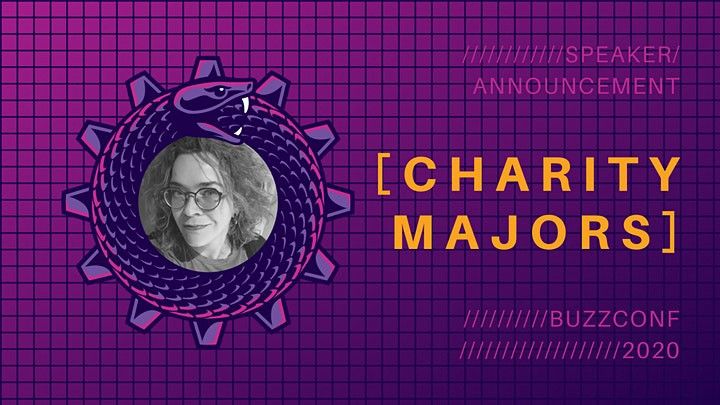
Mon, July 27–3pm PDT / 7pm GMT-3 / 10pm UTC
María Vanina Martinez: “Symbolic Reasoning to model Sentiment and Knowledge Diffusion in Social Networks”
Social media platforms, taken in conjunction, can be seen as complex networks; in this context, understanding how agents react to sentiments expressed by their connections is of great interest. We show how Network Knowledge Bases help represent the integration of multiple social networks, and explore how information flow can be handled via belief revision operators for local (agent-specific) knowledge bases. We report on preliminary experiments on Twitter data showing that different agent types react differently to the same information — this is a first step toward developing symbolic tools to predict how agents behave asinformation flows in their social environment.
Join us on Zoom: https://zoom.us/j/92898927496
Join us on YouTube: https://youtu.be/QK6zEFdvXYw
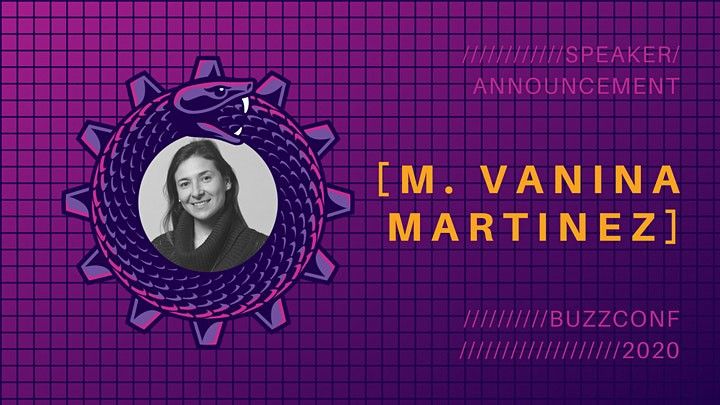
Tue, July 28–2pm PDT / 6pm GMT-3 / 9pm UTC
Will Kurt: “The Limits of Probability”
Probability is an increasingly ubiquitous part of our daily lives, especially as developers, researchers and data scientists. It is easy to mistakenly think this powerful tool is all we need to understand our world. This talk will show how our current environment of global pandemic, political unrest and economic uncertainty forces us to face the limits of probability as a tool for reasoning and understanding. This talk will cover both practical examples of the limitations of probability as well as dive into the philosophical roots of these limitations to show that it cannot be our only means to engage with our world.
Join us on Zoom: https://zoom.us/j/97859783809
Join us on YouTube: https://youtu.be/N75ebGWz2o4
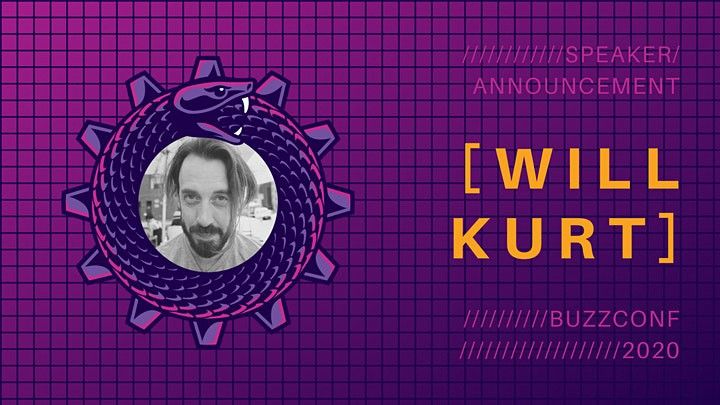
Tue, July 28–3pm PDT / 7pm GMT-3 / 10pm UTC
Lightning Talks
Juan Pablo Lorenzo: “Delete your code: in search of a minimalist approach to software development”
Gajendra Deshpande: “Computation Techniques for Encrypted Data using Python”
Join us on Zoom: https://zoom.us/j/97859783809
Join us on YouTube: https://youtu.be/N75ebGWz2o4
Wed, July 29–2pm PDT / 6pm GMT-3 / 9pm UTC
Aditya Siram: “What FP Can Learn From Static Introspection”
What if compile time and type level programming in functional programming languages were easy, something you reach for without even thinking about it? What if you could debug type errors with a simple compile time print statement? Write highly flexible systems by being able to introspect into types at compile time? Pre-calculate large portions of your programs for great efficiency? Typed functional programming is a great and fun way to write resilient software, and as type systems have become more and more expressive in recent years, we are able to program sophisticated and useful properties at the type level for even better compile time safety. Just one problem: It is very difficult, requires advanced knowledge of the type system, the syntax is convoluted, the error messages are impenetrable, and it is nearly impossible to debug. This talk will dive into why we should steal static introspection from languages like Nim, and D, state-of-the-art imperative programming languages which can solve all these issues, make type systems much more approachable without losing any expressive power, and offer new design possibilities for functional programs.
Join us on Zoom: https://zoom.us/j/95139644343
Join us on YouTube: https://youtu.be/yGq0KnkqOgI
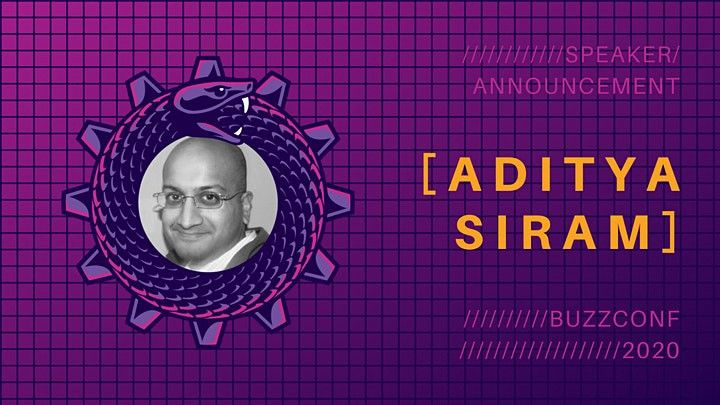
Wed, July 29–3pm PDT / 7pm GMT-3 / 10pm UTC
Sergio Chouhy: “Deeploying Deep Q Learning with Pytorch”
Many things are being said about Deep Reinforcement Learning, but sometimes it is really hard to know where to start. In this talk, I will tell you all about the basis of this algorithms and show you how to deploy Deep Q Learning from scratch using Pytorch. I will be also talking about industrial applications for this technology.
Join us on Zoom: https://zoom.us/j/95139644343
Join us on YouTube: https://youtu.be/yGq0KnkqOgI
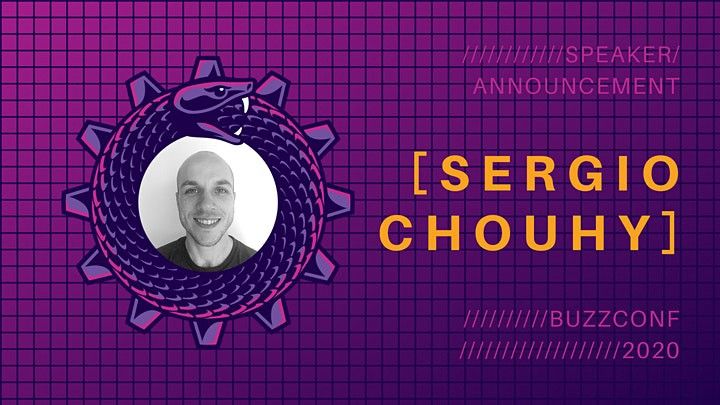
Thu, July 30–2pm PDT / 6pm GMT-3 / 9pm UTC
Viral B. Shah: “Julia — A language for AI and much more”
The Julia language is now used by over half a million programmers worldwide. Created to solve the two language problem, Julia is demonstrating performance gains of 50x-100x for many data science tasks such as data loading, data processing, graph processing, machine learning and scaling. Robust support for modern deep learning and the ability to do differentiable programming in an intuitive way is quickly leading to Julia becoming the language of choice for AI workloads. My talk will discuss the origin story of Julia, the formation of the Julia community, and all the amazing things happening in the world of Julia.
Join us on Zoom: https://zoom.us/j/94906592252
Join us on YouTube: https://youtu.be/fbKHLdoG7wA
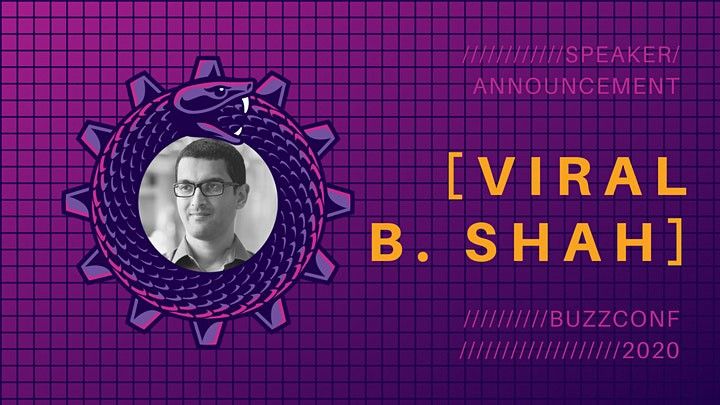
Thu, July 30–3pm PDT / 7pm GMT-3 / 10pm UTC
Chris Rackauckas: “SciML: How Language is Changing Scientific Research”
Scientific machine learning is a burgeoning field and its taking off in Julia. Why? The purpose of this talk is to dive into that question: how has language accelerated the development of Julia’s SciML ecosystem? The core is composibility through multiple dispatch. We will showcase how this feature is not only what makes standard Julia code as fast as C or Fortran, but also allows Julia to eschew the traditional idea of “machine learning frameworks” and instead have machine learning directly work on the standard functions and libraries of the whole Julia programming language. This language-wide differentiable programming then builds a foundation where existing climate models, helicopter simulations, and efficiency simulators for battery-powered airplanes can be instantly composed with new tools for machine learning, and we will demonstrate how this has changed the way that researchers in Julia do science.
Join us on Zoom: https://zoom.us/j/94906592252
Join us on YouTube: https://youtu.be/fbKHLdoG7wA
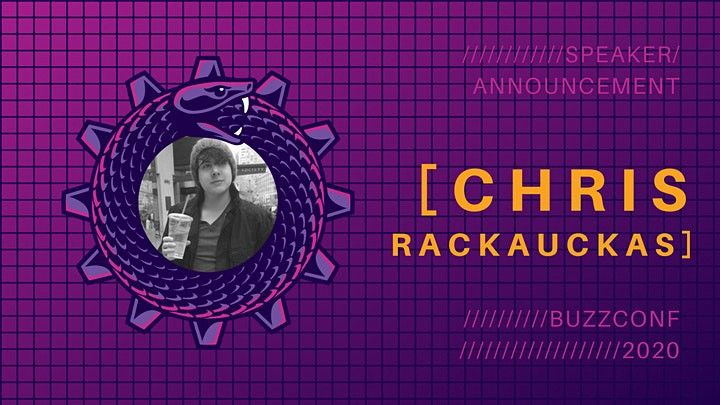
Fri, July 31–2pm PDT / 6pm GMT-3 / 9pm UTC
Pablo Fernandez: “Machine Learning in The Real World”
A tour of the last 3 years of my career where I’ve productionized 3 different machine learning projects on kind-of-a-big-company (Despegar). Some of the challenges faced, not only technical but also from a product standpoint, some of the pedagogical work needed to convince others of letting important decisions be made by a machine. Hopefully insights that help you bring your own models to production.
Join us on Zoom: https://zoom.us/j/92628004626
Join us on YouTube: https://youtu.be/t-ebpSHyBEE
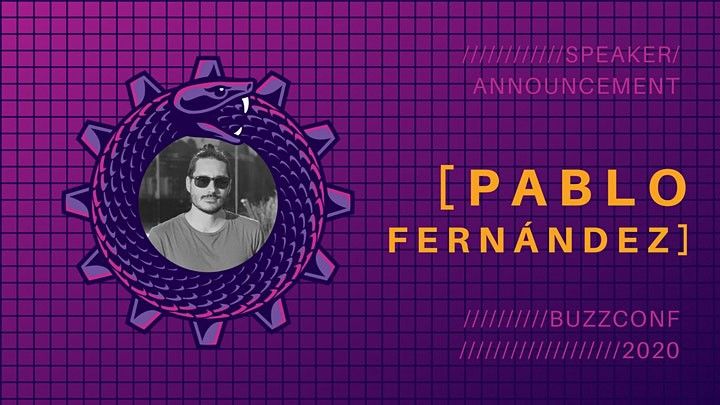
Fri, July 31–3pm PDT / 7pm GMT-3 / 10pm UTC
Peter Alvaro: “What not where: why a blue sky OS?”
A world of distributed, persistent memory is on its way. Our programming models traditionally operate on short-lived data representations tied to ephemeral contexts such as processes or computers. In the limit, however, data lifetime is infinite compared to these transient actors. We discuss the implications for programming models raised by a world of large and potentially persistent distributed memories, including the need for explicit, context-free, invariant data references. We present a novel operating system that uses wisdom from both storage and distributed systems to center the programming model around data as the primary citizen, and reflect on the transformative potential of this change for infrastructure and applications of the future.
Join us on Zoom: https://zoom.us/j/92628004626
Join us on YouTube: https://youtu.be/t-ebpSHyBEE
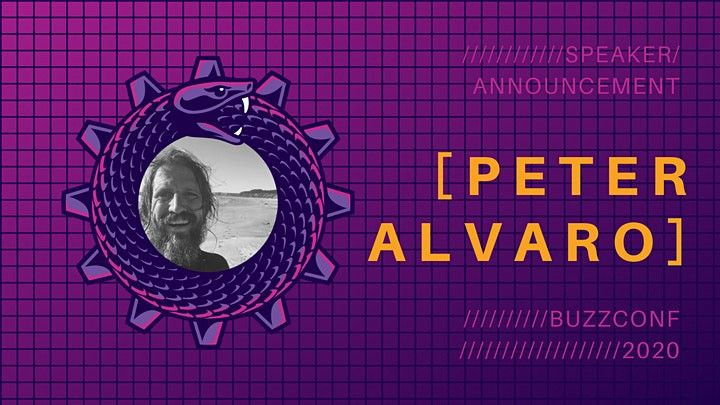
We hope to see you there! There will be time for Q&A with the speakers. Register now!